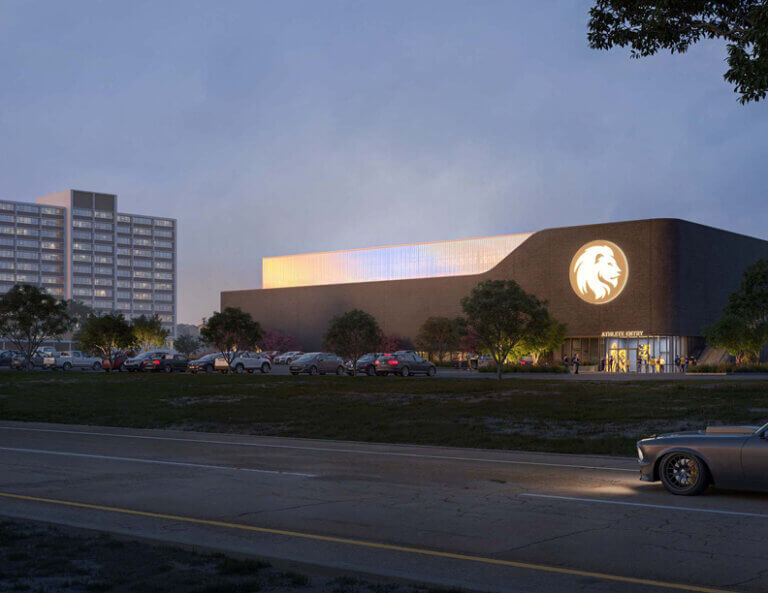
This article originally appeared on Construction Superintendent.
Managing unique challenges, ongoing industry struggles + ‘green grass’
By Chris Maday Schmidt
With 20 years of trades experience under his toolbelt, Matt Tumminia, senior superintendent at Hoar Construction, is responsible for coordination of the construction schedule to ensure no unanticipated interruptions in the normal operation of the project. He conducts weekly job progress and safety meetings, and maintains cost control for work performed by company personnel with full authority for jobsite activities. Join Construction Superintendent as Tumminia shares his all-time time biggest job-related influence, advice for those interested in pursuing a career in the trades, insights on jobsite safety, and more.
(Q) Walk us through a quick tour of your path toward a construction career.
I came into construction through the trades and began my career as a plumbing apprentice in 2003. I gained my Master Plumbing License in 2011. In 2012, I was first introduced to Hoar Construction on a project in Denver, Colorado and then moved to Texas in early 2014 to work for the company full time.
(Q) Which part of your job as senior superintendent is the most rewarding?
I find managing an onsite team to execute the project vision to be really fulfilling. As the senior superintendent, you spend a large amount of time putting together the nuts and bolts of how the project is going to be built. This includes schedule, quality control, trade partner engagement and flow, among other things. For me, it’s hyper-rewarding to watch a group of superintendents move forward and execute what you’ve been planning, with that planning going on sometimes for years prior to the first shovel going into the ground.
(Q) What is your approach to scheduling? When do you like to get involved with the process?
Project flow is the No. 1 priority. It’s our responsibility to make sure we’re planning our projects in a fashion that gives our trade partners as much “green grass” to run in as they can handle. The tricky part in this is making certain that each trade partner has their equal share of the “green grass” without running over or holding each other up. My preference is to get involved at the RFP stage, but if that’s not feasible, I like to be involved as early in the preconstruction phase as possible.
(Q) Which of the industry challenges have been hardest hitting for Hoar; e.g., worker shortage, materials delays, mental health, etc.? How has the company tackled it?
Worker shortage is 100% my biggest concern now. Especially in Austin, Texas, with all the growth, construction labor is in short supply. We are getting out front and involving and awarding trade partner contracts as early as possible. We’re also developing manpower-loaded schedules that we are including in our deals for an added level of accountability to ensure we are all resourcing the project for success.
(Q) Talk a bit about a recent project that presented a unique set of challenges. How were they mitigated?
We’ve all had unique challenges over the past year, but when COVID hit, I was working on a multifamily project in Charlotte, [North Carolina] and we had to think creatively and work quickly to ensure the project could continue safely and on schedule. We instituted health and safety screenings at the gate, staggered start times and coordinated schedules with trade partners to keep large groups from having to be in the same areas at the same time. With the reduced capacity of our buck hoists to maintain social distancing, we used the increased wait times as a way to reinforce our safety plans through looping videos shown on TVs mounted where lines for the buck hoist formed. We also formed a coalition with other contractors in the state to stay on top of changing safety requirements and share best practices. Even with all these additional hurdles, we were able to turn the project in successfully and on time.
(Q) What advice would you give to someone interested in a trades career?
I recommend seeking out friends and/or family members and seeing what they love or don’t love about their career. Then, check out local career fairs. Trades are continuously looking for the next generation to enter the workforce. Trade schools are not as popular as they have been in the past; however, this is a great way to get specialized education in the trade you are looking to pursue.
(Q) Your background includes a wide range of multi-story project types. Which one stands out as most memorable? Why?
All the projects I’ve been fortunate enough to work on have standout memories attached to them. The 38-story project we built in Houston, Texas was the tallest building that Hoar has ever built, which is an achievement I like to be attached to. The 33-story project we built in Tysons [Virginia] had an assortment of challenges, but through solving those challenges, the team built lifetime relationships with each other that help to enrich future project teams. The 32-story project we built in Charlotte was the best I’ve been a part of in regard to setting and maintaining project flow and trade coordination.
(Q) Do you do anything different or unique to approach jobsite safety?
We have a pretty fantastic safety culture at Hoar. My approach is to work as much as possible to make safety a culture of “Eliminating Hazards,” which is Hoar’s definition of safety. Taking the culture approach seems to make safety more of an attitude rather than a requirement. I find that when safety shifts from a requirement to a culture, the real value shines through and trade partners begin holding themselves and each other accountable.
(Q) Who has made the biggest impact in how you approach your job on a day-to-day basis? Why?
The leader of our Texas division, Brady Johnson, has made the biggest impact on me. That man is a machine, and he wants to help solve every problem, take as much off the team as possible and he never stops moving! Brady is such a genuine human being. He truly wants nothing more than for the individuals and the teams to be hyper successful. Watching that man work has changed a lot of the way I do things, even with the things I mentioned above. He continuously maintains a cool head, thinks through his message and is a consummate servant leader.
Q) What is your favorite tool that you won’t leave home without?
Airpods.
(Q) How would your team describe your leadership style?
I asked four people this question and these are the responses I received – ownership, accountability, supportive and empowerment.
(Q) What’s your favorite pastime when you’re not directing daily construction activities?
Hunting and wildlife conservation.

